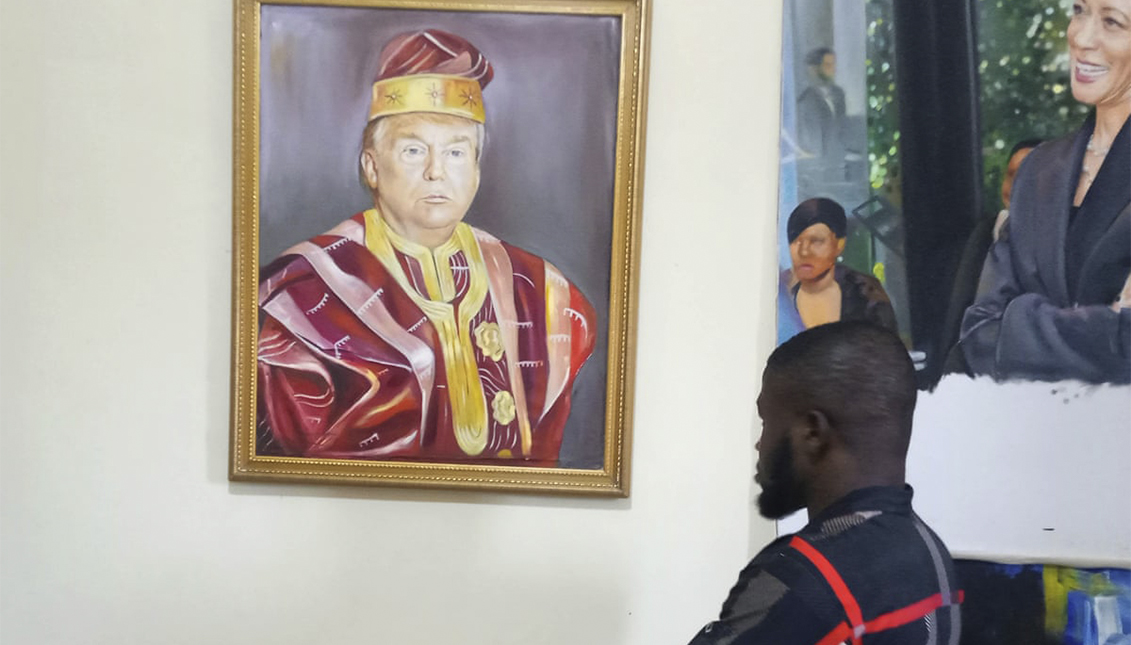
The strange reason why many Nigerians like Donald Trump
Pop revisionism and neoliberal myths come together to turn the mogul into the promise of protectionism and a desire for autarchy.
Hundreds of men, women and children like a red wave, singing and dancing while shaking posters and flags, crossed a city as if it were a street festival or summer party. Applause, smiles and collective joy are shown in an excessive passion similar to that of sporting events. This did not happen in America, but in Onitsha, a small city of half a million inhabitants on the shore of the Niger River in Nigeria
But why in a country of 13 million inhabitants that was exploited by Portugal and then suffered the scourge of the world's geopolitical turmoil is it celebrating the American elections? What is it celebrating?
They celebrate Donald Trump.
Peculiar images of a rally in support of the Republican candidate are revealed as a small sample of the legend that Trump has woven about his legacy in certain countries. It is actually a craving for neoliberalism and extreme autarky, which some would describe as philo-fascism, caused by the American tycoon's pop and marketing revision.
The news came out with images of a Nigerian pastor claiming never to have seen a demonstration of support of such proportions.
RELATED CONTENT
The paradoxical situation is that, despite Donald Trump's treatment to the African continent, which is plagued by insults and tinged with racism, according to The Guardian, he has the support of 58% of the population there, as is the case in other countries such as the Philippines, Israel and Kenya.
Similar news was accompanied carried in Reuters with the portrait of the artist Peter Odoakang dressed in the traditional red agbada, that hangs on a wall in Lagos — the largest port city in Nigeria, where the famous businessman is also revered.
The motives are only partially religious. Nigeria is a Catholic country and the most conservative sectors are concerned about the allegations of sexual abuse but, on the other hand, they cannot tolerate Democratic positions clearly in favor of abortion and homosexual rights, as well as what some call "Islamist agenda." Rather, in the words of some, it is this overriding desire for self-rule and protectionism that hides the promise of the need for the younger generation to flee the country in search of a better future.
Some say more than conservatism or philo-fascism is an inferiority complex. My bet would be that it is actually pop revisionism, born out of the legend generated by the The Art of the Deal (1987), which was a longtime best-seller in Nigeria for years. On the one hand, it implies the birth and expansion of the liberal myth of a man who makes himself and builds economies and empires, told subjectively by Donald Trump himself, but is also accompanied by a pop revisionism of the American way of life. We must also remember that the African country is known for Nollywood, its own mecca of exploitation born at the beginning of the millennium, always in comparison with the American giant.
They already tend to say that to compare is to humiliate.
A few weeks ago, news of the Rudy Giulani hidden camera scandal broke at the premiere of Borat Subsequent Moviefilm (2020), where that same pop revisionism of neoliberal myth in the form of a parody occurred. Something similar happened in terms of dystopia in the cult film by Miguel Llansó from Madrid, Crumbs (2015), which shows us the extent to which this phenomenon is already at play. All this reveals a breeding ground of more than a decade of which this small manifestation is only a sample.










LEAVE A COMMENT: